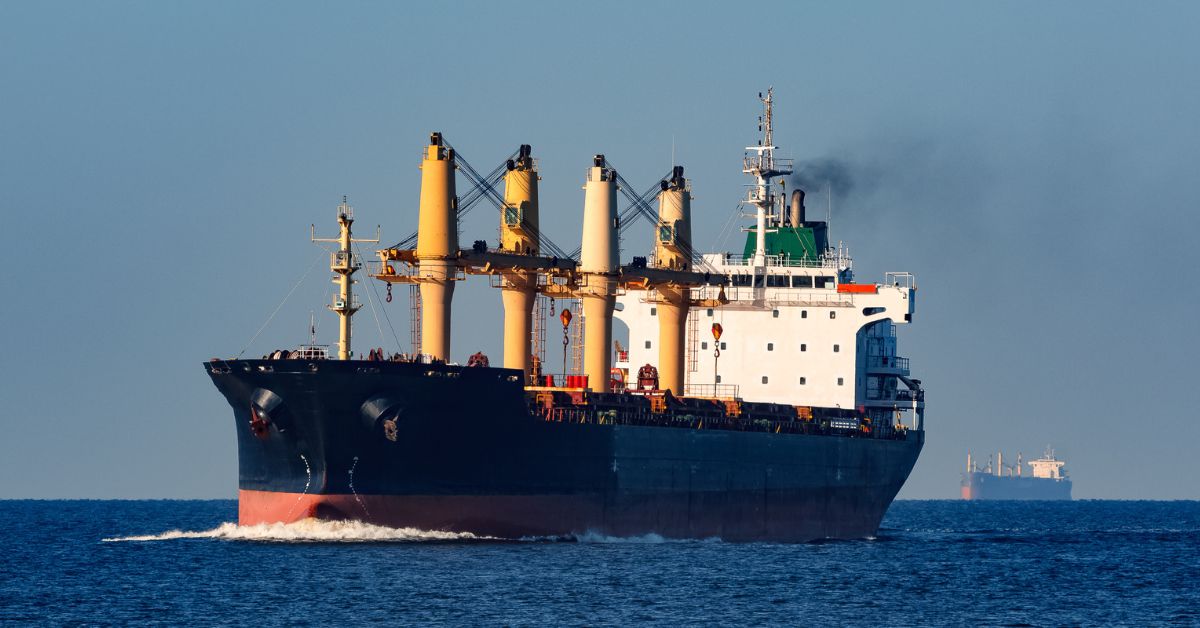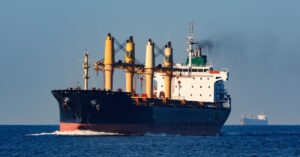
World’s Largest Container Ship Drifts Off Vizhinjam Port Due to Congestion
June 4, 2025
US Navy To Rename Ship Honouring Gay Rights Activist Harvey Milk
June 4, 2025

The captain of a cargo ship caught transporting over 2.2 tonnes of cocaine told a court that he feared he and his family would be killed if he did not follow the instructions given by an organised crime group based in Dubai.
The drugs, valued at over €157 million, were seized during an Irish military operation in September 2023.
At a sentencing hearing in Dublin’s Special Criminal Court on Tuesday, Iranian national Soheil Jelveh, 51, said he was pressured into cooperating with the smuggling operation and claimed he was “captain in name only.”
He said that there was fear on board, and he had to follow orders like the rest of the crew. He also claimed that threats were made against his family, who were in Dubai, if he did not comply.
The MV Matthew, a Panamanian-registered bulk carrier, was intercepted by Irish authorities as part of a coordinated operation involving gardaí, the Revenue Customs Service, and the Irish Naval Service.
According to Detective Superintendent Keith Halley, intelligence was received about a fishing trawler being used for drug smuggling. Jelveh was among several men arrested after the seizure of 2.25 tonnes of cocaine.
The other accused included Mykhailo Gavryk (32) and Vitaliy Vlasoi (33) from Ukraine; Saeid Hassani (39) from Iran; Harold Estoesta (31) from the Philippines; Cumali Ozgen (50) from the Netherlands; and Vitaliy Lapa (62), a Ukrainian based in Berdyansk.
All pleaded guilty to possessing cocaine for sale or supply. Another accused, Jamie Harbron (31) from Billingham, UK, admitted to attempting to possess cocaine for sale or supply between September 21 and 25, 2023.
The court was told that the MV Matthew had sailed from Curacao, near Venezuela, and crossed the Atlantic. During the journey, the ship used a method called “spoofing” to hide its real location while the drugs were picked up at sea using a crane.
The court heard that the MV Matthew was owned by a Dubai-based company called Symphony Marine. It was revealed that members of a transnational organised crime group had recruited the crew for the smuggling operation.
The group used a WhatsApp chat called “The Deck Officers” to instruct the crew. One message told the crew to prepare to offload the drugs onto a lifeboat and release it into the sea as Irish authorities closed in.
When the ship came under surveillance from Irish forces, messages were sent urging the crew to remain calm and continue their mission. Some messages falsely claimed that Irish authorities could not legally board the vessel.
Others warned the crew not to communicate with the Irish Navy. The court was also shown messages ordering the destruction of the drugs if a helicopter attempted to intercept the ship. The crew was told to use paint thinner to burn the cocaine and “make sure everything is burnt.”
Ozgen, one of the crew members, was instructed to go into the lifeboat with 22 tonnes of drugs. His barrister stated that he had very limited sea experience.
As the Irish Naval Service vessel LE William Butler Yeats approached, the MV Matthew ignored several commands to stop. Six men on board refused to comply with the instructions. At one point, the ship started speeding away toward the high seas, in an attempt to reach Sierra Leone.
The court was told that the original plan was to transfer the drugs to a second ship, the Castlemore, which later ran aground due to poor weather and technical failures. The two men on board were rescued by the Irish Navy.
Detective Halley said that when an army helicopter tried to position itself to board the MV Matthew, the crew began manoeuvring the ship in a way that made boarding extremely dangerous.
Despite the risks, the Irish Army Ranger Wing successfully boarded the ship and managed to extinguish the fire that had already started on the lifeboat. Photographs and videos presented in court showed smoke coming from the lifeboat, where cans of paint had been used to try to destroy the drug packages.
Jelveh, a father of two, said he had qualified as a maritime engineer in 1997, worked in the industry until 2008, and eventually became a captain in 2019. He had since retired and was working as a football coach. He told the court he felt “violated” by people in the “head office” who had never been aboard the ship but had complete control over the operation. He claimed that the threats made against him were more serious than those made to his co-accused.
Detective Halley told the court that the people behind the operation had “immense capabilities, unlimited resources and a global reach.”
References: Independent, irishtimes
Source: Maritime Shipping News


